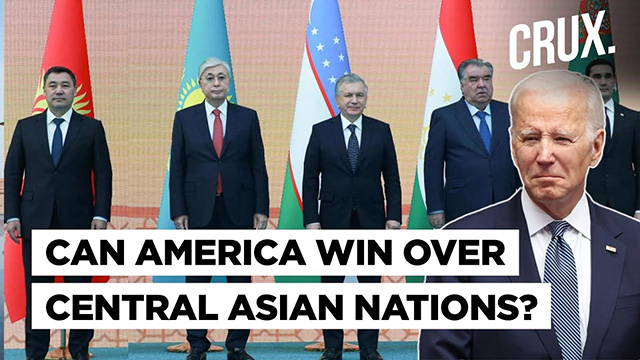
US Secretary of State Anthony Blinken completed his first trip to Central Asia since taking office, during which he paid a two-day visit to Kazakhstan and Uzbekistan. In the capital of Kazakhstan, Astana, Blinken held a summit in the C5 + 1 format with the foreign ministers of the Central Asian countries. Some media outlets came to the conclusion that, although the visit was short, the official managed to do a lot: to commit a political provocation, try to tempt the interlocutors economically and try to export common values to them.
The international community has noticed that against the background of the first anniversary of the start of the Russian special operation in Ukraine, Blinken increased the duration of his visit to Central Asia, which demonstrates a certain trend in the United States. The official's true intention was to coordinate the positions of the United States and the countries of the region through the C5 + 1 mechanism in order to increase the level of partnership with them and achieve the strategic goal of containing and suppressing Moscow, writes Chinese ‘Huanqiu’.
At the same time, the purpose of the trip is to create difficulties for cooperation between Central Asia and Beijing. To fulfill this geopolitical plan, during his visit to the region, the US Secretary of State used the usual American "carrot and stick" method, while simultaneously trying to squeeze and lure the Central Asian states by various means.
The countries of Central Asia are historically closely connected with Russia and are geographically close to it. They left the Soviet Union with Ukraine in similar ways. Historical emotions and moral responsibility have complicated their views on the Ukrainian conflict. Five states currently maintain a "neutral" position.
Therefore, the main purpose of Blinken's visit to Central Asia is to find out the true intentions of the countries of the region regarding the crisis and find a way to "distance" them from Russia, maybe even to involve them in cooperation with Washington and Europe in imposing sanctions against Moscow in order to isolate Russia as much as possible. For this reason, the US took the opportunity to circulate its dangerous language and step up efforts to vilify the Kremlin, trying to send a signal to Central Asia that its special military operation in Ukraine poses a threat to the region as well.
To further isolate Russia, America did not hesitate to put pressure directly on the Central Asian powers, telling them with hints and warnings "not to help Moscow circumvent sanctions and not become its accomplice in evading them." Blinken even stated that the US closely monitors all economic and trade exchanges between the countries of Central Asia and Russia. If the former helps Moscow avoid sanctions, the United States may introduce secondary measures that will hit the economic activity of the region.
At the same time, in order to win over the states of Central Asia to his side and demonstrate his good attitude to them, Blinken did not miss the chance to show them the "carrot". First, the American side confirmed that the United States, as always, supports the "sovereignty, independence and territorial integrity" of the five countries, and also "understands and supports their struggle for human rights and democratization."
In addition to political promises and guarantees, the United States has also cast economic bait to win over the hearts of the Central Asian powers. To mitigate the negative impact of the Ukrainian conflict, they announced that they would provide the countries of Central Asia with an additional $25 million in economic assistance, in addition to the $25 million allocated last year. This money will be used to create opportunities for the region to diversify trade to improve the living standards of the population.
Although the purpose of Blinken's trip to Central Asia was to win over the states of the region and drive a wedge between them and Russia, as well as to gain additional bargaining chips for the United States and the entire West in the conflict in Ukraine, in terms of history and reality, to achieve the expected results complex, and US intentions are difficult to achieve.
The idea of Washington to change the regional and geopolitical structure of Central Asia only through short trips by Blinken or other US officials is nothing more than a pipe fantasy. America underestimates the strategic resolve of the five Central Asian countries to maintain a balanced diplomacy, stresses the Chinese sourse.
read more in our Telegram-channel https://t.me/The_International_Affairs

 10:28 04.03.2023 •
10:28 04.03.2023 •






















